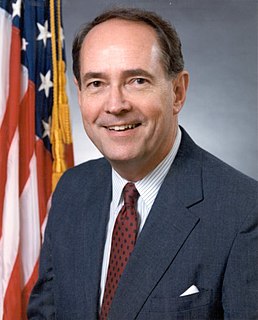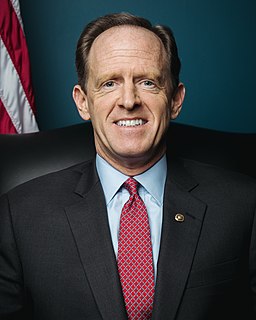A Quote by Dick Thornburgh
Specifically, the reservation of sovereignty to the people of the states in matters not governed by federal law is constitutionally defined and permanently enshrined in the 10th Amendment.
Related Quotes
There are people who oppose a federal Constitutional amendment because they think that the law of family should be made by the states. I can see a legitimate argument there. I think it's mistaken, however, because the federal government, through the decisions of life-tenured federal judges, has already taken over that area.
In
the creation of the federal government, the states exercised the
highest act of sovereignty, and they may, if they please, repeat the
proof of their sovereignty, by its annihilation. But the union possesses
no innate sovereignty, like the states; it was not self-constitute d; it
is conventional, and of course subordinate to the sovereignties by
which it was formed.
The Thirteenth Amendment to the Constitution of the United States was enacted in 1865 by martial law. The Fourteenth Amendment was enacted in 1868 by martial law. The Fifteenth Amendment was enacted in 1870 by martial law. Military occupation of the Southern states did not end until 1877, twelve years after the end of the Civil War.
To hold that Congress has general police power would be to hold that it may accomplish objects not intrusted to the general government, and to defeat the operation of the 10th Amendment, declaring that 'the powers not delegated to the United States by the Constitution, nor prohibited by it to the states, are reserved to the states respectively, or to the people.
As a matter of law the states recognized no constraints on their legislative scope other than those that were self-imposed. Even where particular state constitutions paid ideological lip service to constraints deriving from religious or natural law doctrines, they reserved to some constitutionally-defined body or person the right to interpret these doctrines.
This is a unique legal loophole in the U.S.: If a non-native comes on a reservation and commits any crime, the non-native should be prosecuted by a federal court. Tribal law can arrest and hold someone for a year, but tribal law cannot prosecute non-natives. So since the federal courts are so overloaded, some of the cases get tossed out.































